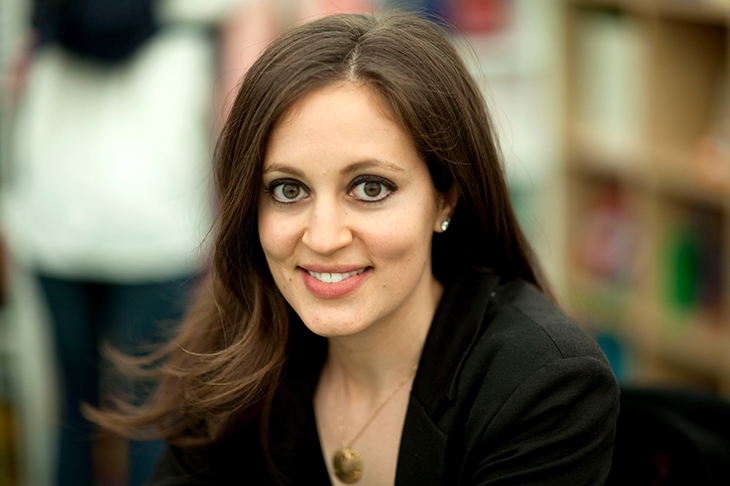Memoirs about giving birth, a subject once shrouded in mystery, have become so popular that another may seem otiose. We are all produced in variations of anxiety, pain and delight: what is the point of labouring labour?
Two years ago, the novelist Francesca Segal gave birth to twins ten weeks prematurely. Her account of their struggle to survive in the neo-natal units of two London hospitals could be mawkish, banal and of no interest to anyone save those who have experienced a similar ordeal. That it is, in fact, as gripping as a thriller and as moving as a love story is testament to her exquisite writing and deep humanity.
Her narrative moves from the joyful and humorous (‘we shared a new and urgent interest in anchovies and cottage cheese,’ she says of the developing twins inside her) to the appalling: finding herself bleeding in the hospital loo, she tries to clean up the mess before pulling the emergency cord. Her introduction to motherhood feels ‘not like a birth but an evisceration’.
Unable to be cuddled or touched, the babies she initially calls A and B each weigh less than a bag of sugar. Too fragile for clothes, but with their ‘fine leaf-veining’ visible beneath translucent skin, they are menaced by their immaturity, by the flu virus season and by endless interventions that can go wrong. What can make the difference to a premature baby is the milk its mother must express eight to ten times every 24 hours. Still recovering from abdominal surgery, Segal becomes one of a number of such mothers, attached to a breast pump and experiencing the accelerated intimacies of medical trauma.
What these new mothers call ‘the milking shed’ is a novel topos, described as ‘a place, a state, of grace’. Friendship, jokes, fantasies of arranged marriages between their babies and sympathy transcend class, race, status and education. I have long thought that childbirth is the female equivalent of the battlefield, and Segal’s account of how people with nothing much in common are bound together by trauma and hope underlines this. In this place, fear of mental or physical impairment shrivel before the fear of death. The privileged north London world she has described so elegantly in The Innocents and The Awkward Age can never look the same again.
Segal’s gentle humour and eye for character are two of the most admirable aspects of her book and make every setback and advance more affecting during the 56 days of struggle. Some useful practical information is woven into her account as Celeste and Raffaela — as A and B eventually become — move in and out of crisis, ‘handled like precious relics’, but needing to be left every day by their agonised mother.
The state provision of services that would, in other continents, cost many thousands of pounds is something that, as an American, Segal is in awe of. From beanbag hands that retail at $99 a pair, donated free as effective comforters, to the overworked but compassionate nurses and doctors, these are some of the miracles which we take for granted. Mother Ship is a love letter to the NHS, as much as to the babies and women of the milking shed.
Of the 60,000 premature babies born annually, Segal tells us, 85 per cent are (as my own son was) ‘moderate to late preterm’. Her twins were squarely in the ‘very preterm’ box. If you have had any experience of a traumatic birth, be warned: you will burst into tears at what happens here.But Segal’s book, like the best war stories, has a happy ending — albeit one that does not forget the tiny ‘fallen soldier’ who was unable to win through.
Epic Continent: Mother Ship
Author: Francesca Segal
Publisher: Chatto
Page count: 288
Price: £14.99






Comments